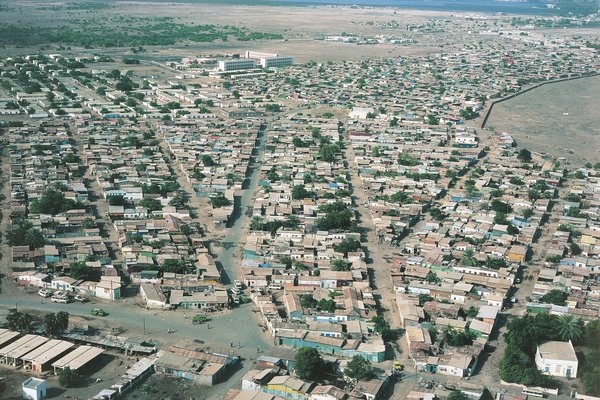Djibouti: Djibouti Economy Profile
2015/10/07
Overview
With a increase rate of 5.9% in 2014 the country’s economy continued the acceleration witnessed in 2013 (5%). This momentum is expected to be maintained in the years ahead, supported by the pursuit of a huge investment programme, notably in infrastructure. The investment programme, which aims to transform the country into a regional platform of commercial, logistical and financial services, reflects a radical change of direction for the national economy.
The increase rate is expected to reach 6% in 2015. The huge investment programme that is supporting this increase is driven by increased port activity and foreign direct investment (FDI). Most of the port activity concerns the transit of merchandise to and from Ethiopia. The flow of FDI into the country is concentrated on infrastructure for ports, roads, buildings and hotels. In 2013, FDI accounted for 18.6% of gross domestic product (GDP), a record level.
The country is advancing only slowly in terms of economic and financial governance. Public finances recorded a deficit of 3.1% of GDP in 2013, compared to 1.1% in 2011 and 2.7% in 2012. The deficit remained high in 2014 at 2.6% of GDP. Djibouti’s external position remains fragile because of deficits in its trade balance and current accounts. The country’s trade balance is structurally loss-making and the trade deficit continued to widen in 2014. The level of deficit remains critical and puts Djibouti at high risk of over-indebtedness.
The economy remains weakly diversified, with a predominant informal sector. The economy is mainly concentrated on transport activities and connected services that are served by the country’s geostrategic position on the Gulf of Aden, at the intersection of strategic maritime trade corridors for the transport of goods and oil. The concentration of economic activities and jobs in the city of Djibouti, notably around the port and foreign military bases, has encouraged a considerable flow of inhabitants to the capital, accelerated by unemployment and drought. Today, nearly 80% of the people is concentrated in the country’s towns, with additional than 60% in the city of Djibouti, the capital. The pace of urbanisation has been very swift and all the issues of economic and social development are presently concentrated in the urban fabric. The authorities have realised that, for about 20 years, development and its sustainability have depended upon the efforts made to correct imbalances between the capital and regional towns.
Macroeconomic indicators

- With a growth rate of 5.9% in 2014, the economy continued the acceleration observed in 2013 and is expected to maintain this rhythm in 2015.
- The fiscal deficit started to decline in 2014 and is expected to further decline in 2015/16 but the country’s level of debt remains critical.
- The economy of Djibouti lacks diversification, and although growth has been steady since 2006, it has not made possible a significant reduction of poverty.
Ease of Doing Business in Djibouti

Starting a Business
- Djibouti News
-
- BOTSWANA: Children on the move from Africa do not first aim to go to Europe, new UNICEF study shows
- BOTSWANA: WHO lauds Africa’s progress in malaria, HIV control
- BOTSWANA: South Africa plays an active role in the AU
- BOTSWANA: Africa: How to Adapt to Beat Crippling Droughts
- BOTSWANA: Africa: Expanded Engagement for Caterpillar - Boosting Sales & Alleviating Poverty
- BOTSWANA: WHO Africa Health Forum App Leads the Way
- Trending Articles
-
- TURKEY: Turkish Supreme Military Council replaces land, air and navy commanders
- EUROPEAN UNION: UK and EU stuck on 'philosophy' of Brexit bill
- GERMANY: Germany agrees measures to cut diesel pollution
- MONTENEGRO: Go West, VP Pence tells Balkan leaders
- CHINA: China energy regulator raises targets for curbing coal-fired power
- CHILE: Chile presidential candidate Pinera would modify pension system









